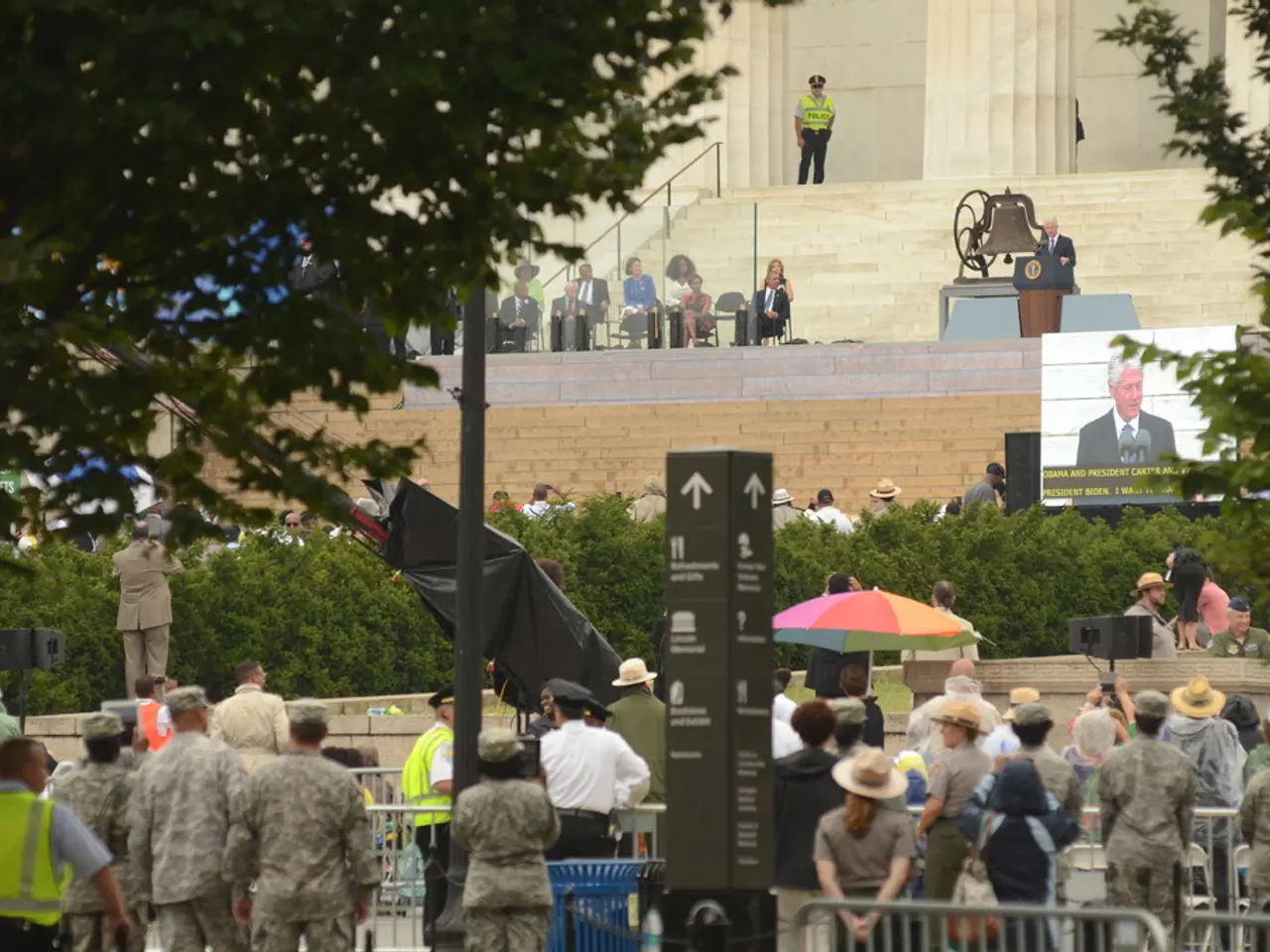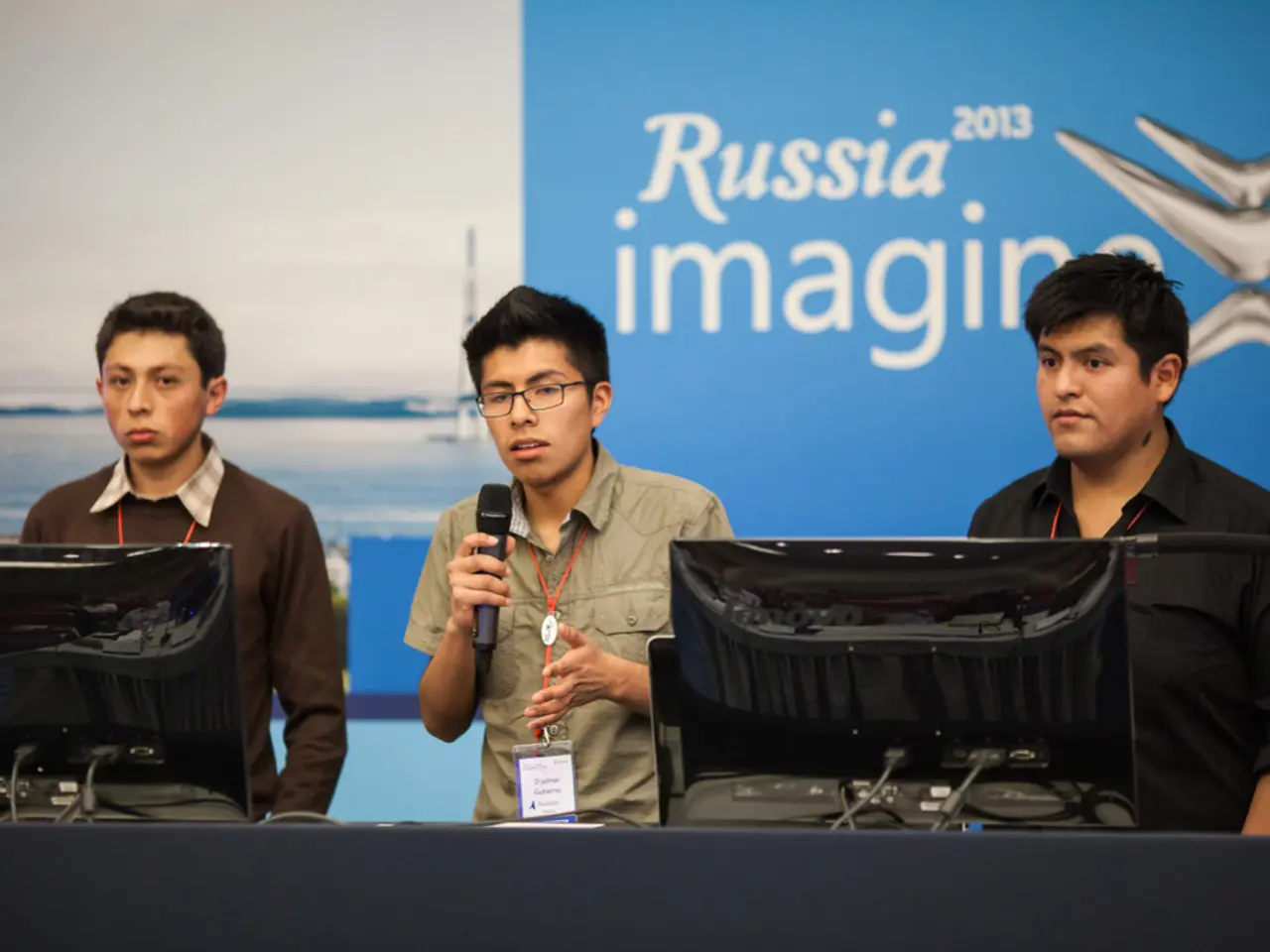Title: Wadephul: "Encouraging Progress" EU-Iran Talks Continue Amidst Geopolitical Tensions
Iran will persist in discussions with European foreign ministers
In the midst of escalating geopolitical tensions, six key players gathered for a marathon session of diplomatic discussions—the foreign ministers of Germany, France, the UK, along with the EU's foreign policy chief, and their Iranian counterpart. The four-hour meeting in Geneva might not have yielded concrete results, but as per German Foreign Minister Johann Wadephul, it offered an encouraging indication.
According to CDU politician Wadephul, the negotiations with Iranian Foreign Minister Abbas Araghtschi revealed a hopeful sign that the Iranian side is open to discussing all critical issues further. "The positive outcome here is that we've left this meeting with the impression that the Iranian side is fundamentally willing to keep talking," Wadephul stated post-negotiations.
Iran's eagerness to engage in additional talks with European counterparts was echoed by Araghtschi, who, as reported by the state news agency Irna, affirmed Iran's readiness for another meeting in the near future. However, he reiterated a condition: "Provided that Israel's attacks continue, we will not negotiate with any party."
The French called for direct talks with the US. Foreign Minister Jean-Noël Barrot expressed their urging of Iran to engage in negotiations with all parties, including the United States, and not to await a cessation of airstrikes—which they also advocated against.
Wadephul expressed the gravity of the situation in the Middle East and the need to prevent further escalation. He emphasized that Europe's aim is to make progress in negotiations while underlining the importance of the United States' involvement in these negotiations for a viable solution.
At present, Europe views Iran's nuclear program with significant concern, and Germany prioritizes securing Israel's security interests, which it is particularly committed to protecting. The negotiations centered on Iran's nuclear program, with Israel justifying its attacks by asserting that Iran is nearing nuclear weapons capability, a claim Tehran vehemently denies.
Amidst escalating tensions following a U.S. air strike on Iranian nuclear facilities, European and EU leaders reiterate that Iran must not develop nuclear weapons and advocate for a return to diplomatic negotiations. Ursula von der Leyen, the President of the European Commission, stressed that Iran must never acquire a nuclear weapon and called for a credible diplomatic solution, stating that the negotiating table is the only way to end the crisis. The EU continues to push for renewed diplomatic talks with Iran on its nuclear program, but Iran's current diplomatic engagements indicate limited cooperation with Europe at this juncture. Upcoming discussions among EU foreign ministers aim to coordinate Europe's response and explore avenues back to negotiation despite the strained environment.
[1] This information is derived from a blend of recent geopolitical and international relations context.
- The ongoing EU-Iran discussions, taking place in the context of escalating geopolitical tensions, can be considered as part of the general-news realm, as they involve community policy, cooperation policy, and negotiations regarding Iran's nuclear program.
- As Europe continues to push for renewed diplomatic talks with Iran on its nuclear program and encourages a return to negotiations, the level of cooperation from Iran appears to be limited, hence posing challenges in achieving a credible diplomatic solution—a key issue in current politics.







